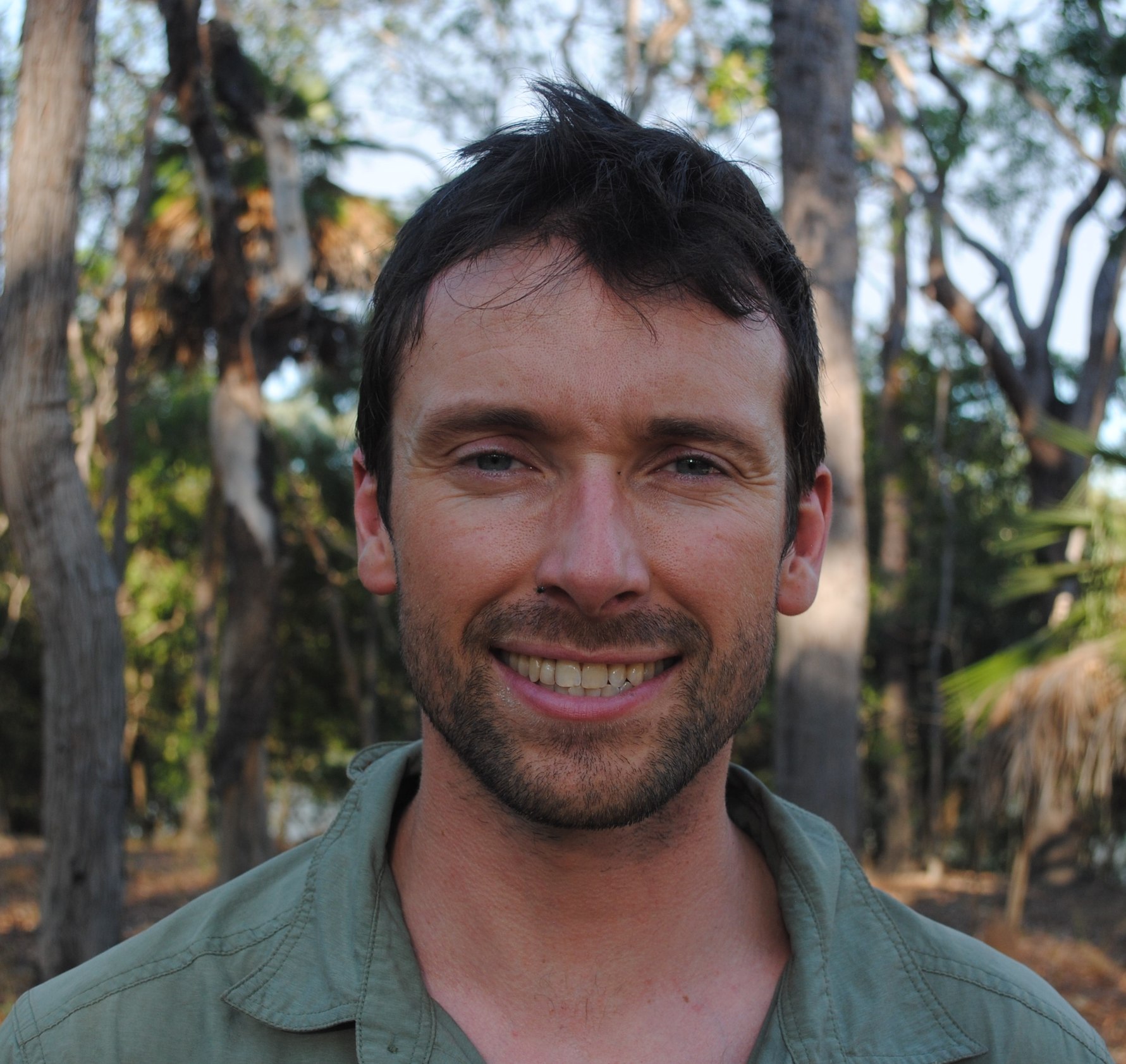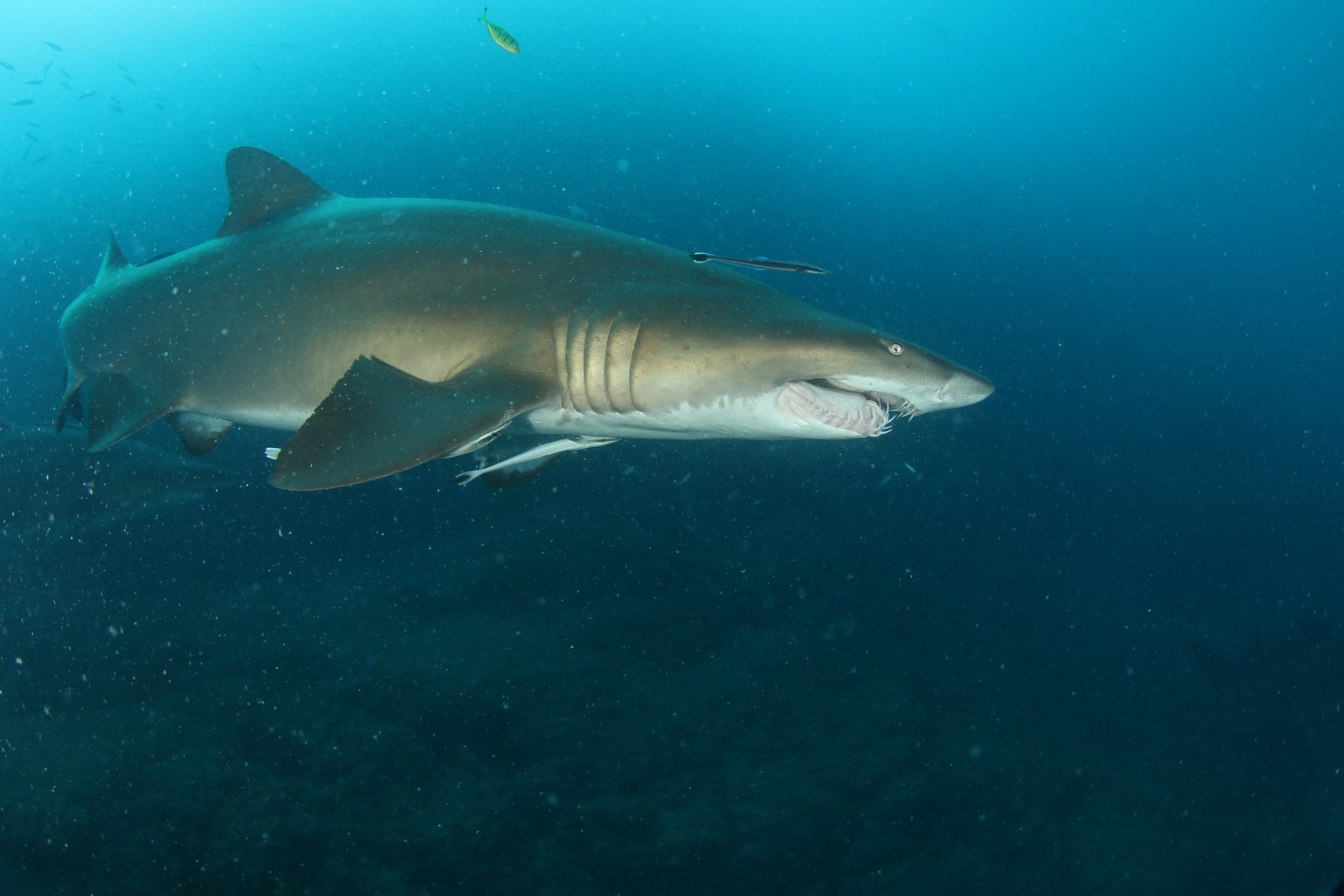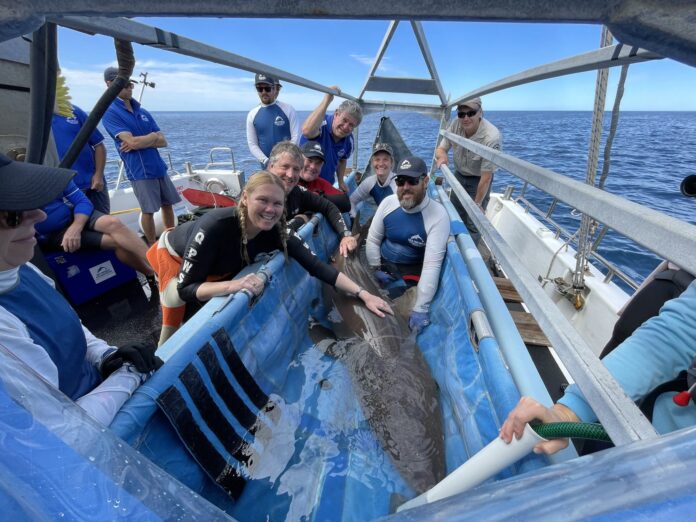A slow birth-rate and night-time wanderings of pregnant grey nurse sharks away from no-take marine protected areas are putting the species at further risk of extinction, a University of the Sunshine Coast researcher has found.A 10-year study that tagged and tracked 34 grey nurse sharks migrating between the Great Barrier Reef and southern New South Wales identified the double threat for the critically endangered species, which has only about 400 breeding animals left in the wild.The collaborative research led by UniSC’s Dr Ross Dwyer and Dr Carley Kilpatrick from the Queensland Parks and Wildlife Service found the migratory sharks regularly visited no-take marine protected areas (MPAs) established along the east coast of Australia.This included Wolf Rock, northeast of Double Island Point; Flat Rock, north of North Stradbroke Island; and Henderson Rock and Cherubs Cave, east of Moreton Island.All are popular spots for scuba diving tourism in Queensland, with the grey nurse shark not considered a risk to human safety.Dr Dwyer, an animal ecology academic, said Flat Rock, Henderson Rock and Cherubs Cave were used for several weeks each year during winter to early summer by migrating male and female sharks.“In contrast, Wolf Rock was particularly important for pregnant female sharks, which would stay at the site for up to 254 days during their gestation,” he said.

“However, sharks regularly left the relative safety of the MPAs, often in darkness.“These excursions will likely increase the risk of them becoming bycatch – getting accidentally caught in commercial or recreational fisheries or in shark control equipment along beaches.”
The findings were published this month in the international journal Biological Conservation, in a paper co-authored by nine partners from the University of Queensland, QPWS, NSW Department of Primary industries, Sydney Institute of Marine Science and Macquarie University.One of the tracked female sharks was initially captured as an immature shark in August 2015, after she was observed by members of the public off North Stradbroke Island with a stainless-steel rod protruding through her stomach.Following surgery and a period of rehab at Sea World Gold Coast, she was detected five years later with fresh mating scars at Cherubs Cave enroute to Wolf Rock.Dr Kilpatrick, a senior conservation officer and grey nurse shark expert with QPWS, said Wolf Rock was the only known gestation site for the Australian east coast grey nurse population.
“These night-time excursions suggest the existing no-take MPA at Wolf Rock needs to be larger to protect sharks in areas we now know they use, and help ensure the species’ long-term conservation,” she said.“The tracking also revealed a longer than expected three-year migratory cycle linked to breeding.
“This slow reproductive rate, with females not breeding until they are at least nine years old and having a maximum of two pups at a time, highlights why the population has been so slow to recover.

“The research highlights how our no-take MPAs do a great job of protecting grey nurse sharks while they congregate in them.
“Our concern is that they are spending a lot more time outside of the no-take MPAs than we thought; including areas adjacent to no-take MPAs such as Wolf Rock.” Dr Dwyer said the study used for the first time a novel combination of latest animal-tracking technology and shark counts by citizen scientists.“The study was a massive collaborative effort, and we’d like to thank everyone who helped count and tag the sharks, and maintain over 300 moorings along the Australian east coast where these tagged grey nurse sharks were detected – from Heron Island in the Great Barrier Reef to Montague Island in southeast New South Wales,” he said.“This approach produced accurate, valuable data and can now be applied to other migratory coastal shark species to ensure marine area networks offer maximum protection benefits.”The study received funding from QPWS (a division of the Department of Environment and Science), the Australian Government, Sea World Research and Rescue Foundation, Edge Pledge, Sea Life Trust, Australian Capital Equity, Halcyon Land and Sea, Foundation for National Parks and Wildlife and Zoo and Aquarium Association.Sea World Gold Coast, SEA LIFE Sunshine Coast and Australia Zoo at Beerwah provided operational and logistical support, including boats, crew, scuba divers and veterinarians.





